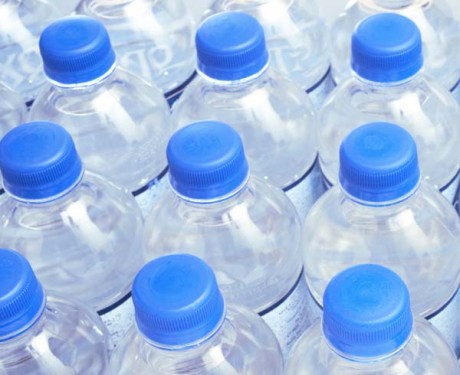Let’s Talk Trash
Is bottled water really better?
By Amy Ney
Once upon a time we all drank tap water but now many people get their water from disposable plastic water bottles. According to a 2009 report by the Beverage Marketing Corporation, American consumers spent almost $8.5 billion that year to purchase bottled water, leading to revenues of almost $10.6 billion for the bottled water industry. Is that bottled water safer than tap water? Let's sort out fact from fiction.
First of all, bottled water is expensive. Depending on where it is purchased, bottled water can cost five cents or more per ounce. To put it into perspective, gasoline currently costs nearly three cents per ounce. At 128 ounces per gallon, that's over $6 for a gallon of water! Even organic orange juice and milk don't cost that much. Bottled water just doesn't make good financial sense, especially in this economy.
Next, bottled water is not any healthier than tap water. As a matter of fact, approximately one-third of bottled water is actually filtered tap water. The cleanliness of bottled water is regulated by the FDA (or if sold within the state, it is regulated by the state) rather than the stricter EPA regulations that govern tap water. Studies have shown that bottled water may contain contaminants not allowed in tap water, and that plastic bottles can leach chemicals such as Bisphenol A (BPA) into the water.
Even more importantly, bottled water generates lots of trash. In one year, North Carolinians throw away over 64 tons of water bottles (at an average of 23.83 grams each), worth more than $41.4 million. Some reports estimate that up to 80 percent of water bottles are thrown away rather than being recycled, even though plastic bottles are banned from disposal in North Carolina landfills.
It requires 17 million barrels of oil annually to produce water bottles for the U.S.market alone — depleting our resources for bottles that take thousands of years to break down and often end up polluting our waterways and oceans while wreaking havoc on marine wildlife. In addition, the unsustainable availability of bottled water detracts from the resources necessary to maintain public drinking water infrastructure, as well as turning water into an expensive commodity instead of a precious resource available and affordable to all.
The best method to protect your wallet and our environment is to use a refillable glass or metal water bottle and carry it with you when you travel. If serving water at public events or at home, use a pitcher. If you don't like the way your tap water tastes, purchase an inexpensive carbon filter. Talk to your municipality and favorite restaurants about not serving bottled water, except in an emergency. Be an advocate for adequate funding and good management of municipal water systems and pay attention to your local water issues. Finally, conserve water wherever you can, and encourage others to do the same.
Benefits of recycling
When we discuss trash like plastic bottles, we have to discuss recycling, because the two go hand in hand. Both reducing our usage and recycling decrease the amount of trash that enters our landfills and our environment. It also provides jobs and boosts our economy by employing over 14,000 North Carolinians and creating a payroll upward of $300 million that is reinvested in our local economies by employees. Imagine how the industry could grow if we utilized all of the $270 million worth of recyclable goods that North Carolinians throw away every year!
To determine what recycling facilities exist in your area, contact your county or municipality. For example, convenience centers are located throughout Haywood County that accept household waste and recyclables — aluminum cans, bottles and jars, steel cans, plastics labeled 1–7, and any type of paper or cardboard from a tree. If recycling services are limited in your area, encourage your county or municipality to increase services, and ask your friends and neighbors to do the same. The simple act of recycling makes an enormous collective impact by protecting our natural resources (air, water, trees, soil, gas, oil, etc.), increasing available landfill space, and influencing our economy, environment and even our employment rate.
-
Share this story:

